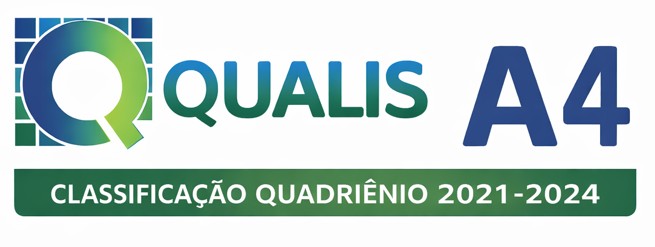Escola de Aruanda: Aprendizados e ensinos a partir do lugar do negro
Palavras-chave:
Escola(s), Questão Racial, Filosofia(s), PoesiaResumo
Este artigo é uma releitura existencial, poética e decolonial de experiências da questão racial negra vividas que reúne – à luz da episteme afrodiaspórica – elementos da minha trajetória de aprendizados escolares formais e de vivências algumas reflexões vertidas a partir do meu lugar de homem negro, periférico, filósofo e professor da Educação Básica de uma região periférica do Distrito Federal. E a expressão dos meus aprendizados, num primeiro momento, não se conforma às estruturas objetivistas de ensino, porém, indaga paradigmas científicos que se colocam universalmente como único validador de conhecimentos. Ao tensionar outros paradigmas limitantes também no âmbito da cultura e da política a corporidade negra apresenta saberes peculiares de uma filosofia afrodiaspórica, por sinal, pouco trabalhada nas nossas escolas formais. É desta maneira que, ao filosofar em primeira pessoa, a minha experiência meta-subjetiva relatada traz para o ensino um caminho emancipatório a partir de um saber corporificado nas vivencialidades afrocentradas – até então negadas pelo objetivismo e pelo eurocentrismo. Este relato abriga na linguagem poética epistemes intuídas dos grupos e segmentos raciais de luta e de resistência da negritude. Pinçando tópicos de ontologias humanistas da filosofia tradicional, emprego a linguagem da ancestralidade africana e afrodiaspórica como epistemes de uma grande escola, Aruanda.
Palavras-chave: Poesia. Existência. Raça. Cura.
Aruanda School: Learning and teaching from the perspective of black people
Abstract: This article is an existential, poetic and decolonial re-reading of experiences of the black racial issue that brings together - in the light of the aphrodiaspora episteme - elements of my trajectory of formal school learning and experiences, some reflections from my place as a black man, peripheral , philosopher and teacher of Basic Education in a peripheral region of the Federal District. And the expression of my learning, at first, does not conform to objectivist teaching structures, however, it questions scientific paradigms that are universally placed as the only validator of knowledge. By tensioning other limiting paradigms also in the scope of culture and politics, the black corporeality presents peculiar knowledge of an aphrodiaspora philosophy, by the way, little worked on in our formal schools. It is in this way that, by philosophizing in the first person, my meta-subjective experience reported brings to teaching an emancipatory path from a knowledge embodied in Afro-centered experiences – hitherto denied by objectivism and Eurocentrism. This report shelters in the poetic language intuited epistemes of racial groups and segments of struggle and resistance of blackness. Picking up topics from humanistic ontologies of traditional philosophy, I employ the language of African and Aphrodiaspora ancestry as epistemes of a great school, called Aruanda.
Keywords: Poetry. Existence. Breed. Cure.










